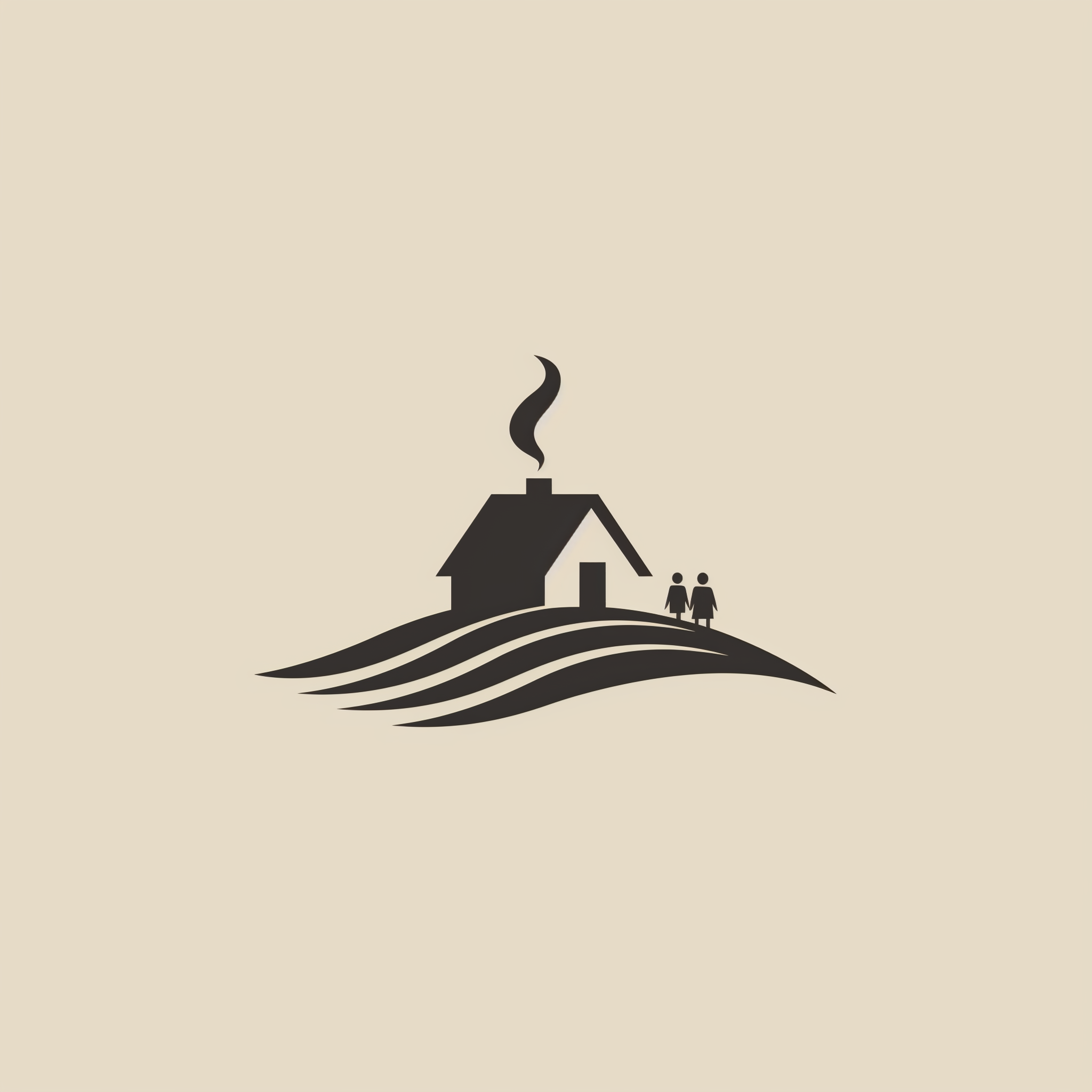Settler
Definition
A settler is an individual who moves with the intention of establishing a permanent residence in a new region or country, often uninhabited or sparsely inhabited, and sometimes with the support of a government or sponsoring organization.
Parts of Speech
- Noun
Pronunciation
American English
- IPA Pronunciation: /ˈsɛtlər/
- Respelling: SET-lər (with "SET" as in "pet," and "lər" as in the ending of "tumbler")
British English
- IPA Pronunciation: /ˈsɛtlə/
- Respelling: SET-luh (with "SET" as in "pet," and "luh" similar to the ending of "tumbler" but without the rhotic 'r')
In both dialects, "settler" is pronounced with the initial "set" sound followed by a syllable that ends in a sound similar to "ler" or "luh," depending on the presence or absence of the rhotic 'r' characteristic of most American and non-rhotic British accents, respectively. The primary stress is on the first syllable, "SET."
Etymology
The term "settler" is derived from the Middle English word "setlen," which means to establish or resolve. The suffix "-er" is used to denote someone who performs a specified action, thus forming a word that signifies an individual who establishes a new community.
Derivatives
- Settle
- Settlement
- Resettle
- Resettlement
- Unsettled
Synonyms
- Colonist
- Pioneer
- Immigrant
Antonyms
- Native
- Migrant
- Itinerant
Usage
The term "settler" is used predominantly in historical and geographical contexts to describe individuals or groups who establish new communities. It can refer to a range of scenarios from the early pioneers and colonists in various parts of the world to modern individuals moving to sparsely populated areas.
Related Terms
- Colonization
- Migration
- Homesteading
- Frontier
- Diaspora
Detailed Definition
Noun
- An individual who moves to a new region, either alone or with a group, with the intention of establishing a permanent residence and community. Settlers often migrate to sparsely populated or uninhabited areas to start new lives, cultivate land, and contribute to the growth of the region.
settler



🇨🇳 Mandarin
- 定居者 (dìngjūzhě)
- IPA Pronunciation: /tiŋ˥˩ t͡ɕy˥˩ ʈʂə˧˥/
- Respelling in English: ding-joo-zhuh
- 殖民者 (zhímínzhě)
- IPA Pronunciation: /ʈ͡ʂʰi˧˥ min˥˩ ʈʂə˧˥/
- Respelling in English: zhih-meen-zhuh
🇮🇳 Hindi
- बसेरा (baserā)
- IPA Pronunciation: /bəseːraː/
- Respelling in English: buh-say-raa
- उपनिवेशक (upaniveṣak)
- IPA Pronunciation: /upəniʋeːʂək/
- Respelling in English: upa-nee-vesh-ak
🇪🇸 Spanish
- colono
- IPA Pronunciation: /koˈlono/
- Respelling in English: koh-loh-no
- poblador
- IPA Pronunciation: /poβlaˈðor/
- Respelling in English: poh-blah-dor
🇫🇷 French
- colon
- IPA Pronunciation: /kɔ.lɔ̃/
- Respelling in English: koh-lawn
- établisseur
- IPA Pronunciation: /e.ta.bli.sœʁ/
- Respelling in English: eh-tah-blee-seur
🇸🇦 Modern Standard Arabic
- مستوطن (mustawṭin)
- IPA Pronunciation: /mus.taʊtˤin/
- Respelling in English: musta-wtin
- مقيم (muqīm)
- IPA Pronunciation: /muː.qiːm/
- Respelling in English: moo-keem
🇧🇩 Bengali
- বসতবাড়িয়া (bôsatbāṛiyā)
- IPA Pronunciation: /bɔsot.baɹia/
- Respelling in English: bosot-ba-ree-ya
- উপনিবেশক (uponibeshôk)
- IPA Pronunciation: /uponibesʰɔk/
- Respelling in English: upo-nee-besh-ok
🇷🇺 Russian
- поселенец (poselenets)
- IPA Pronunciation: /pɐsʲɪˈlʲenʲɪts/
- Respelling in English: po-se-lye-nets
- колонист (kolonist)
- IPA Pronunciation: /kəˈlonɪst/
- Respelling in English: ko-lo-nist
🇵🇹 Portuguese
- colonizador
- IPA Pronunciation: /kuloˈnizaðoɾ/
- Respelling in English: koo-lo-nee-zah-dor
- povoador
- IPA Pronunciation: /poʋoˈðaðoɾ/
- Respelling in English: po-voa-dor
🇮🇩 Indonesian
- pemukim
- IPA Pronunciation: /pəˈmukim/
- Respelling in English: puh-moo-kim
- penjajah
- IPA Pronunciation: /pənˈd͡ʒad͡ʒah/
- Respelling in English: pen-ja-jah
🇩🇪 German
- Siedler
- IPA Pronunciation: /ˈziːdlɐ/
- Respelling in English: zeed-ler
- Ansiedler
- IPA Pronunciation: /anˈziːdlɐ/
- Respelling in English: an-zeed-ler
🇯🇵 Japanese
- 開拓者 (kaitakusha)
- IPA Pronunciation: /ka.i.ta.ku.ʃa/
- Respelling in English: kai-ta-koo-sha
- 入植者 (nyūshokusha)
- IPA Pronunciation: /ɲʲuː.ʃo.ku.ʃa/
- Respelling in English: nyoo-sho-koo-sha
🇻🇳 Vietnamese
- người định cư
- IPA Pronunciation: /ŋʷi˧˩˧ ðiɲ˧˩˧ ku˧˩/
- Respelling in English: ngwee dinh koo
- người khai hoang
- IPA Pronunciation: /ŋʷi˧˩˧ kʰai˧˩ hwɐŋ˧˩/
- Respelling in English: ngwee khai hwang
🇰🇷 Korean
- 정착자 (jeongchakja)
- IPA Pronunciation: /t͡ɕʌŋ.t͡ʃʰak̚.t͡ɕa/
- Respelling in English: jung-chak-ja
- 식민지인 (sikminjiin)
- IPA Pronunciation: /ɕik̚.min.d͡ʑi.in/
- Respelling in English: sik-min-jee-in
🇹🇷 Turkish
- yerleşimci
- IPA Pronunciation: /jæɾ.leˈʃim.dʒi/
- Respelling in English: yar-le-shim-jee
- kolonist
- IPA Pronunciation: /kolonist/
- Respelling in English: ko-lon-ist
🇵🇰 Urdu
- بسندہ (basinda)
- IPA Pronunciation: /bəsind̪aː/
- Respelling in English: buh-sin-da
- مستقر (mustaqar)
- IPA Pronunciation: /mus.t̪aː.qər/
- Respelling in English: mus-ta-kar





